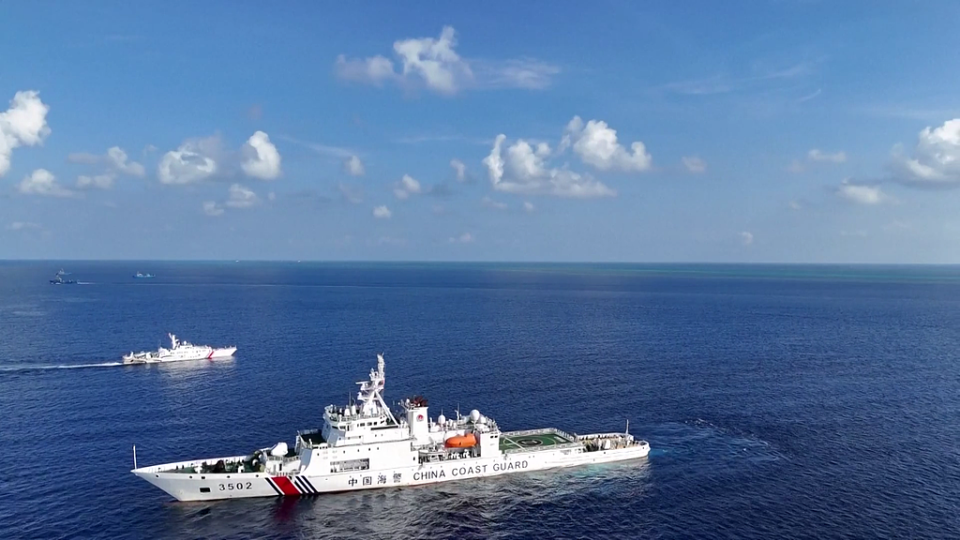Philippine President Ferdinand Marcos Jr. has signed two significant laws aimed at affirming the nation’s maritime territories and resource rights, particularly in the contentious South China Sea, escalating tensions with China, which claims nearly the entire region.
On Friday, Marcos publicly enacted the Philippine Maritime Zones Act and the Philippine Archipelagic Sea Lanes Act during a televised ceremony attended by high-ranking military and national security officials. These laws mark a firm rejection of China’s sweeping claims over the vital waterway, imposing severe penalties for violations.
Following the announcement, China’s foreign ministry summoned the Philippine ambassador to convey a “stern protest,” condemning the legislative action as an effort to “solidify the illegal ruling” arising from the South China Sea arbitration case.
The clash between Chinese and Philippine coast guard and naval forces has intensified since last year, raising concerns that the United States, a long-standing ally of Manila, could become embroiled in a potential conflict.
“These new laws signal our commitment to safeguard our maritime resources, protect our rich biodiversity, and ensure that our waters continue to sustain the livelihoods of all Filipinos,” Marcos stated.
In a response, Chinese Foreign Ministry spokesperson Mao Ning asserted that the laws “seriously infringe on China’s territorial sovereignty and maritime rights in the South China Sea,” adding that China “strongly condemns and firmly opposes” the measures.
The laws define critical areas within Philippine territorial waters and establish full sovereignty and sovereign rights in accordance with international law and the 1982 U.N. Convention on the Law of the Sea (UNCLOS). Key provisions include the designation of a 200-nautical-mile Exclusive Economic Zone (EEZ) where the Philippines holds exclusive rights to utilize energy and other resources. Although foreign vessels have the recognized right to “innocent passage” through these zones, adherence to security protocols is paramount.
The Archipelagic Sea Lanes Act further enables the Philippines to delineate specific sea lanes and air routes for foreign transit, shaping navigation under Philippine regulation and international law.
“These legal instruments solidify our territory and empower us to protect against any infringements,” remarked National Security Adviser Eduardo Ano.
While Marcos contends that these laws align with international standards, many provisions contradict China’s claims, raising concerns about enforcement amidst escalating Chinese maritime aggression.
Finalized versions of the laws, which will take effect 15 days after publication in the official government gazette, state that “all artificial islands constructed within the Philippine EEZ belong to the Philippine government.” The Philippines maintains that its maritime rights are grounded in UNCLOS, domestic laws, and a 2016 arbitration ruling that invalidated China’s extensive claims.
Despite the ruling, China has rebuffed the arbitration, continuing its aggressive maritime tactics, which include using military-grade lasers and water cannons against perceived intruders.
The U.S. has reiterated its commitment to defending the Philippines, warning that it is obligated to respond if Filipino forces, aircraft, or ships face armed attacks in the disputed waters. As tensions continue to rise, the implications of these newly enacted laws will be closely monitored on both sides of the South China Sea dispute.
Credit: ABC News





